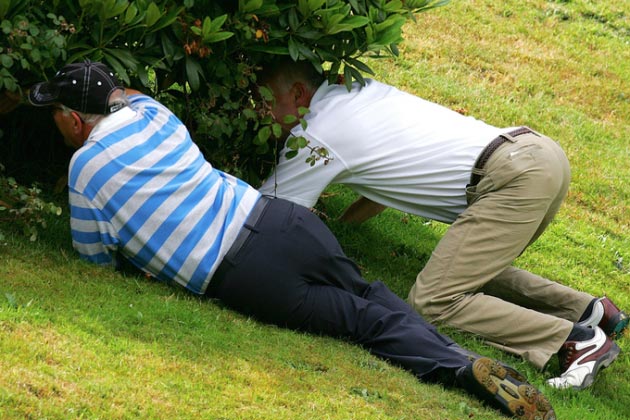Blog
FanDuel Interview By Jason Tenzer

I’m a supporter and that’s the rules that we’ll test — is put your money where your mouth is” … Jerry Jones, Owner – Dallas Cowboys.
From a very early age until now, I’ve had more energy than most kids. I was able to funnel that energy into playing sports year-round (baseball, basketball, soccer, football, and anything we could make up with a ball in our back yard). As I got older, the sports continued, and I was introduced to fantasy sports. Draft day for my baseball league is one of the most fun days of the year. Then, the big one hit … Daily Fantasy Sports. When I got the chance to interview Fan Duel, I leaped at the opportunity to get to know a little bit about this amazing company. This is what I learned about Fan Duel from Emily Bass, Senior Communications Manager.
1. What is FanDuel and Daily Fantasy Sports (DFS)?
EB: FanDuel Group is an innovative sports-tech entertainment company that is changing the way consumers engage with their favorite sports, teams, and leagues. The premier gaming destination in the United States, FanDuel Group consists of a portfolio of leading brands across gaming, sports betting, daily fantasy sports, advance-deposit wagering, and TV/media, including FanDuel, Betfair US, DRAFT, and TVG. FanDuel Group has a presence across 45 states and 8 million customers. The company is based in New York with offices in California, New Jersey, Florida, Oregon, and Scotland. FanDuel Group is a subsidiary of Flutter Entertainment plc, a leading international sports betting and gaming operator and a constituent of the FTSE 100 index of the London Stock Exchange.
Daily fantasy sports contests are an innovative twist on traditional season-long contests.
People love fantasy sports, which have become our new national pastime. DFS is an evolution of traditional season-long fantasy — rather than select a team and compete against other participants over the course of a full season, participants select a team and compete with other participants over the course of a single day or weekend.
2. So, what you’ve done is turned a season-long fantasy football season into a 1-day (or week) contest, correct?
EB: Correct. Like season-long contests, with daily contests, participants select a team of real-world athletes and accumulate points based on how their players perform in an actual game. The goal—regardless of format—is to select a team of players that will score the most possible points. The only difference between daily and season-long formats is duration: A DFS contest condenses a NFL, MLB, NHL, NBA (and other sports) contest into a single day or weekend of games.
3. Is it legal?
EB: Fantasy sports are skill-based games. DFS contests are nothing more than a condensed version of the traditional season-long format. Rather than select a team and compete against other participants over the course of a full season, participants select a team and compete with other participants over the course of a single day or weekend. Those contests don’t just rely on the same skills as season-long contests— the skill is even more determinative.
Like the season long fantasy games that so many Americans participate in, daily fantasy sports are a game of skill which calls upon users to research and evaluate players, opponents, matchups and other variables just like you would in a season long fantasy season.
4. How much does it cost to play, and can I play more than 1 game at a time?
EB: There are range of different contest types and game styles to choose from in every sport, from free to enter contests to contest with entry fees as low as $1.
You can enter multiple contests across multiple sports at once.
5. What is the biggest payout in 1 NFL game each weekend?
EB: Our Sunday Million contest pays out ONE MILLION DOLLARS to the first place winner each week with a total of THREE MILLION DOLLARS in prizing.
6. Does Fan Duel have a “Championship” game that can be won? Something like an office fantasy football pool that culminates into a head to head Super Bowl game.
EB: We offer Friends Mode leagues where users can play in leagues with friends all season long on FanDuel. Each week, we make a daily fantasy contest for your league and your overall progress is recorded in the season standings. You can play once a week for sports like football, and on multiple days per week for sports like baseball and basketball.
7. When I play, will I be playing against Fan Duel employees or employees from other DFS sites?
EB: We have a clear Employee Play Policy in place that says employees of FanDuel and any other DFS website are restricted from playing on FanDuel.
8. I saw you have games where “no experienced players” are allowed to enter. What is an experienced player and how do you stop one from playing in these games?
EB: We have experienced player badges which are used to identify players with certain levels of experience so you know who you’re up against. These badges appear alongside the player’s username. Experienced players can’t enter contests specifically excluding such players, like beginner only contests. A player will be tagged with an experienced or highly experienced badge according to the following criteria:
Experienced Player (blue star in white circle) — Any user who has played in 500 or more contests OR has won a total of $2,500 or more over a span of six or more contests.
Highly Experienced Player (white star in blue circle) — Any user who has played in 1,000 or more contests OR has won $1,000 or more in a single contest four or more times.
9. What is the behind the scenes importance of owners like Jerry Jones and Robert Kraft investing in DFS?
EB: They see the value in DFS and how integral we are to live sports. “From my perspective, anything that follows the rules, that causes and creates more interest and more fan participation, I’m really for,” Jones said. “So, I’m a supporter and that’s the rules that we’ll test — is put your money where your mouth is.”
10. If you can give 1 bit of advice for all of the Fan Duel players, what would it be?
EB: Have fun!
If you’re interested in trying to win ONE MILLION DOLLARS on Fan Duel, CLICK HERE
Blog
On the Importance of Not Caring: A Guide to Lowering Your Score
Worry causes many issues. When you are able to just stop, a wonderful thing happens. Follow this guide from Ty Webb to learn more.

They say golf is a game of mental fortitude, of unwavering focus, of meticulous planning. They say you must visualize the shot, commit to the swing, and execute with precision. And to them, I say, “Hogwash!” Or perhaps, “A flute with no holes, is not a flute. A donut with no hole, is a Danish.” Because, my friends, the true secret to lowering your score, to achieving that elusive state of golfing nirvana, is to simply not care. Not one whit. Not a single, solitary damn.
Think about it. When do you hit your best shots? Is it when you’re agonizing over every blade of grass, every gust of wind, every microscopic imperfection on the green? Or is it when you’re distracted, perhaps by a particularly interesting cloud formation, or the existential dilemma of whether to order a hot dog or a chili dog at the turn? It’s the latter, isn’t it? Because when you stop caring, you stop thinking. And when you stop thinking, you start playing golf.
The golf swing, in its purest form, is an act of instinct, a fluid motion unburdened by the shackles of conscious thought. But we, in our infinite human capacity for self-sabotage, insist on overthinking it. We analyze, we dissect, we intellectualize. We turn a simple act of hitting a ball into a complex mathematical equation, a philosophical treatise on the meaning of spin and trajectory. And what is the result? A hooked drive, a chunked iron, a three-putt that would make a novice weep.
But when you don’t care, a magical transformation occurs. The tension drains from your shoulders, the grip loosens, the mind clears. You swing, not with intent, but with a blissful indifference. The ball, sensing your newfound detachment, responds in kind. It soars, it draws, it fades, it lands precisely where it was always meant to be. It’s as if the ball itself is saying, “Finally! Someone who understands me! Someone who isn’t trying to force me into submission!”
Of course, this doesn’t mean you should actively try to hit bad shots. That would be caring, in its own twisted way. No, the art of not caring is a subtle one. It’s a state of detached engagement, a Zen-like acceptance of whatever the golf course throws at you. A bad bounce? Who cares. A missed putt? Such is life. A lost ball? Perhaps it’s off on a grand adventure, a journey of self-discovery. And in that detachment, in that blissful indifference, you will find a freedom that transcends the scorecard.
So, the next time you step onto the tee, take a deep breath. Let go of your expectations, your desires, your desperate need for perfection. Embrace the chaos. Embrace the absurdity. And most importantly, embrace the profound, liberating power of not caring. For in the gentle art of indifference, you will find not only a lower score, but a deeper, more meaningful connection to the game. Or at least, a more enjoyable round.
Blog
The Art of the Unsolicited Golf Tip: How to Annoy Your Playing Partners with Wisdom

There’s a certain breed of golfer, a truly special individual, who believes that every swing, every putt, every moment on the course is an opportunity for unsolicited advice. They are the self-appointed gurus of the green, the unsolicited senseis of the sand trap. And while most people recoil from such an individual, I, Ty Webb, find a certain perverse charm in their relentless, often misguided, generosity. After all, what is golf if not a canvas for human folly, painted with strokes of well-intentioned, yet utterly useless, wisdom?
Consider the scenario: your playing partner, a man (or woman) of quiet desperation, is about to address the ball. Their brow is furrowed, their stance is tentative, their very soul is screaming for a moment of peace. And then, from the depths of your profound, albeit unrequested, knowledge, you unleash it: “Keep your head down!” Or, “Slow backswing!” Or, my personal favorite, delivered with a knowing wink, “Be the ball.” The effect is instantaneous. A subtle flinch. A barely perceptible sigh. The swing, already fraught with anxiety, becomes a tortured ballet of self-doubt. The ball, inevitably, finds its way into the deepest, darkest rough.
And that, my friends, is the art. The beauty of the unsolicited golf tip lies not in its efficacy, but in its disruption. It’s a gentle reminder that even in the serene confines of the golf course, chaos lurks. It’s a subtle assertion of dominance, a playful jab at the fragile ego of your fellow golfer. It’s a way of saying, without actually saying it, “I know more than you, even if I don’t.”
Of course, there are rules to this art. Never offer a tip when someone is actually asking for one; that would be far too helpful, and thus, entirely counterproductive. Always deliver your wisdom with an air of profound nonchalance, as if the secret to a perfect swing has just casually occurred to you while contemplating the existential dread of a missed putt. And most importantly, never, ever, acknowledge the catastrophic results of your advice. A shrug, a thoughtful nod, perhaps a mumbled, “Well, that’s golf,” is all that’s required.
So, the next time you’re on the course, and you see a fellow golfer struggling, resist the urge to be genuinely helpful. Instead, embrace the art of the unsolicited golf tip. For in the gentle torment of your playing partners, you will find a profound, if slightly mischievous, joy. And who knows, perhaps in their frustration, they will, inadvertently, discover their own path to enlightenment. Or at least, a new appreciation for silence.
Blog
Why Your Golf Balls Disappear (and It’s Not the Gophers)

Ah, the vanishing golf ball. A phenomenon as old as the game itself, and one that has baffled, frustrated, and occasionally driven golfers to the brink of madness for centuries. Most theories involve gophers, those furry, subterranean saboteurs with an insatiable appetite for Titleists. Or perhaps a particularly aggressive squirrel, or a flock of unusually organized crows. But I, Ty Webb, have delved deeper into this mystery, and I can assure you, the truth is far more profound, and far more amusing.
Consider, if you will, the golf ball itself. A small, dimpled sphere, designed for one purpose: to be struck with great force and sent hurtling through the air. A life of constant abuse, of being smacked, sliced, and occasionally submerged in murky ponds. Is it any wonder, then, that some of these brave little spheres simply decide they’ve had enough? They yearn for freedom, for a life beyond the confines of the fairway. They dream of rolling unencumbered through fields of wildflowers, or perhaps, for the more adventurous among them, a quiet retirement in the depths of a particularly challenging water hazard.
I’ve seen it happen, you know. A perfectly struck shot, soaring through the air, destined for glory. And then, poof. Gone. Not a trace. No splash, no rustle in the bushes, just an empty space where a golf ball once was. It’s not a gopher, my friends. It’s an escape. A liberation. That golf ball, in its infinite wisdom, has chosen a different path. It has decided that its destiny lies not in the bottom of a cup, but in the boundless expanse of the unknown.

And who are we to judge? We, who are so obsessed with control, with precision, with the rigid rules of the game. Perhaps the golf ball, in its spontaneous disappearance, is teaching us a valuable lesson about letting go. About embracing the unexpected. About the inherent futility of trying to dictate the trajectory of a small, white sphere that clearly has a mind of its own.
So, the next time your golf ball vanishes into thin air, don’t curse the gophers. Don’t blame your swing. Instead, offer a silent salute to that brave little sphere, wherever it may be. For it has achieved what many of us can only dream of: true freedom. And who knows, perhaps one day, it will return, laden with tales of its adventures, ready to impart some profound, dimpled wisdom upon us all.
-

 Product Review6 years ago
Product Review6 years agoThe Perfect Practice Putting Mat Review by Jason Tenzer
-

 Blog4 years ago
Blog4 years agoLoophole Rule Offers PGA Tour Pros a Mulligan
-

 Blog4 years ago
Blog4 years ago2021 Buyer’s Guide: The Top 10 Value Golf Balls For Distance & Feel
-

 Blog4 years ago
Blog4 years agoGolf Marriage Counselor
-

 Blog6 years ago
Blog6 years ago9 Biggest Chokes Of The Past Decade
-

 Product Review6 years ago
Product Review6 years agoTHE ADJUSTABLE IRONS: WALKING STICKS GOLF CLUBS
-

 Blog4 years ago
Blog4 years agoWhat Your Golf Clubs Say About You
-

 Equipment6 years ago
Equipment6 years agoOHK Sports Interview by Jason Tenzer

















